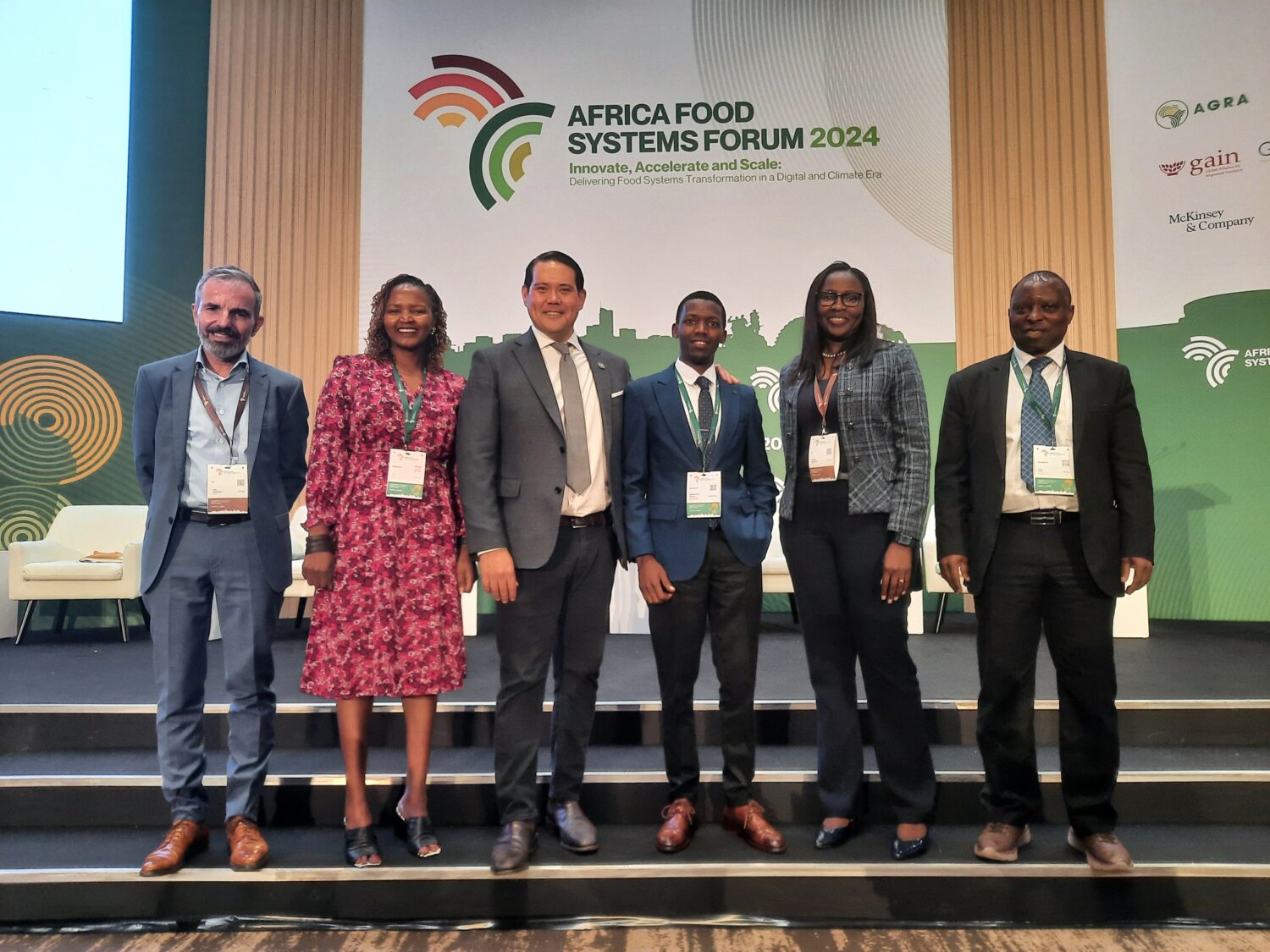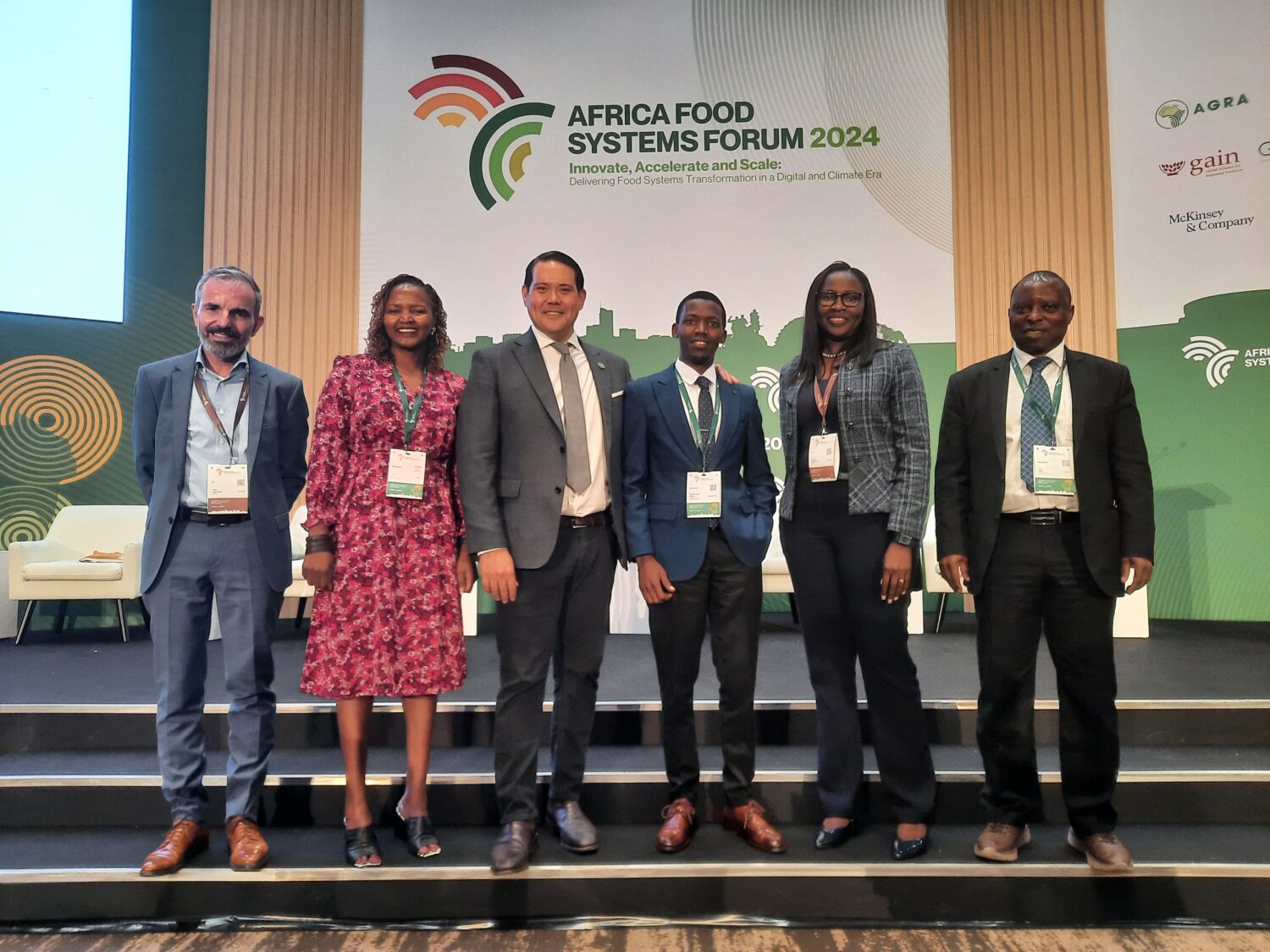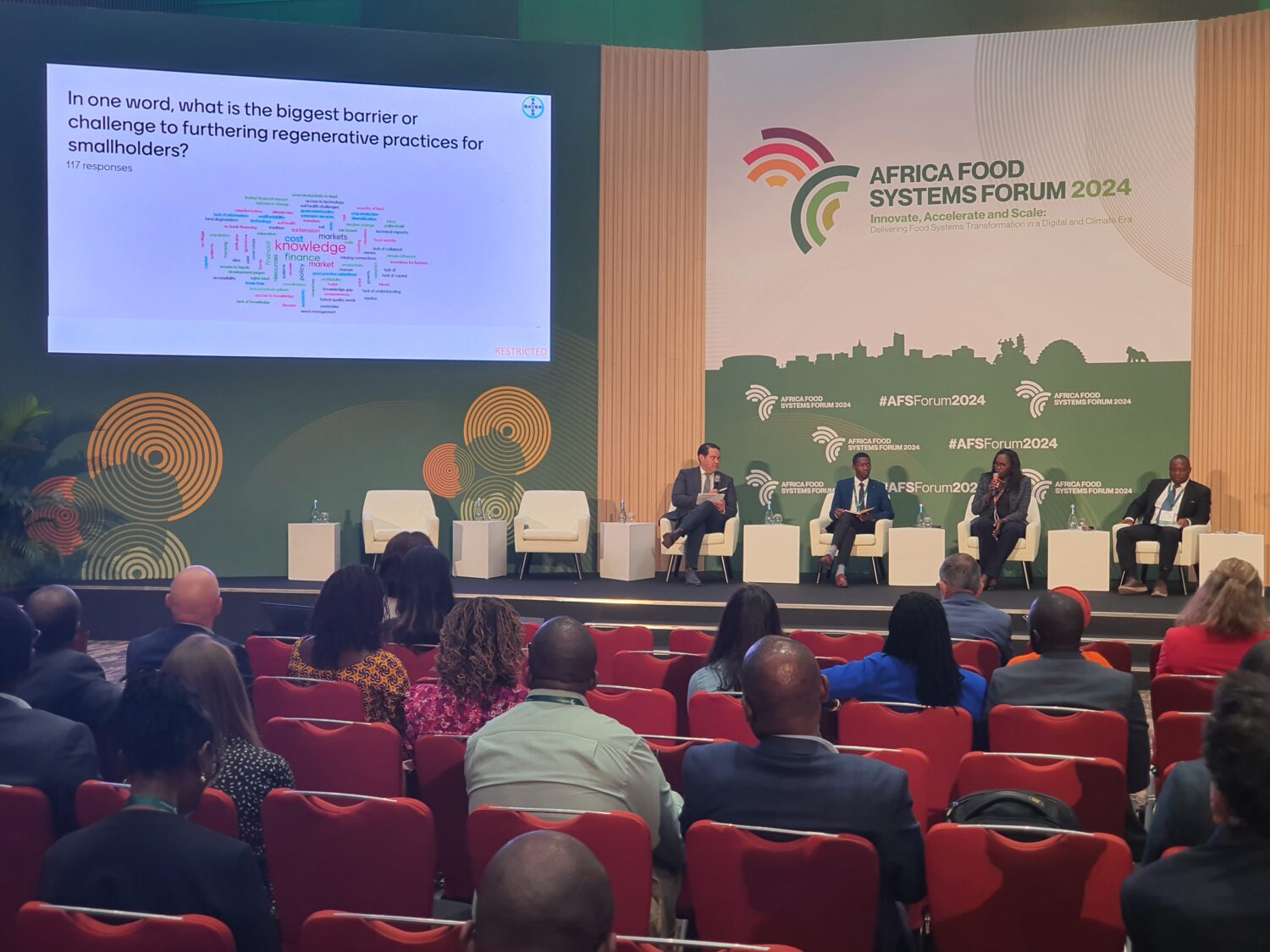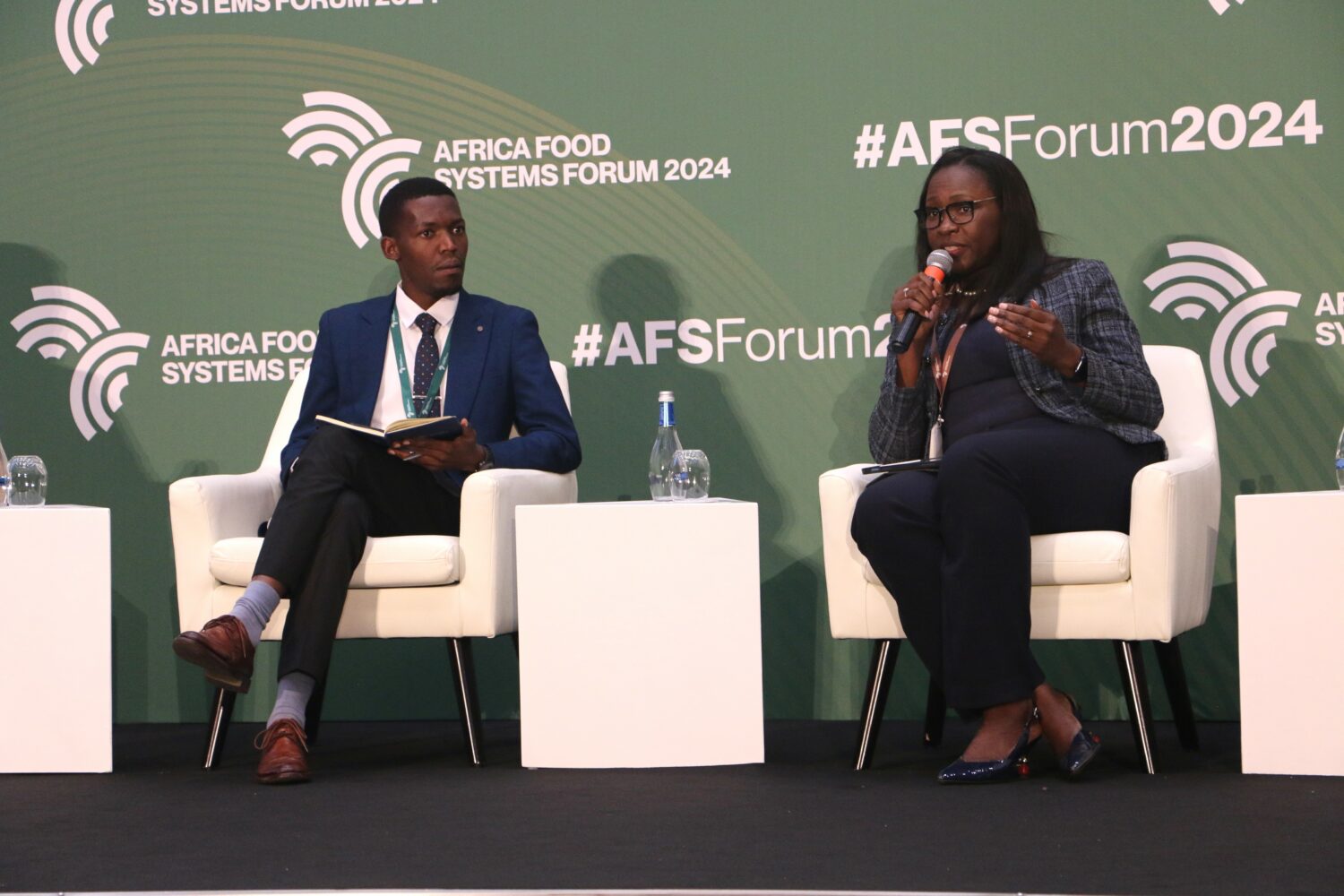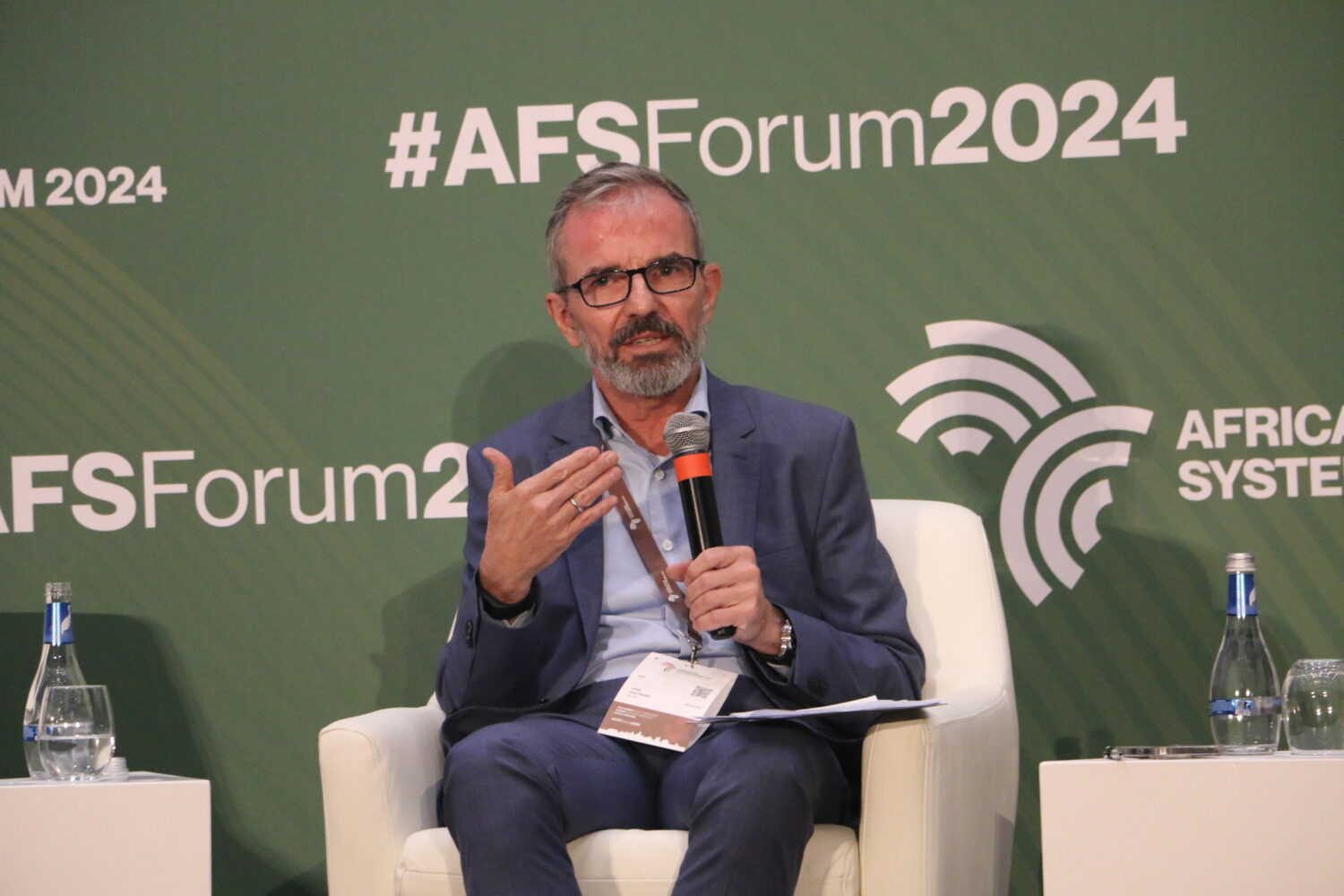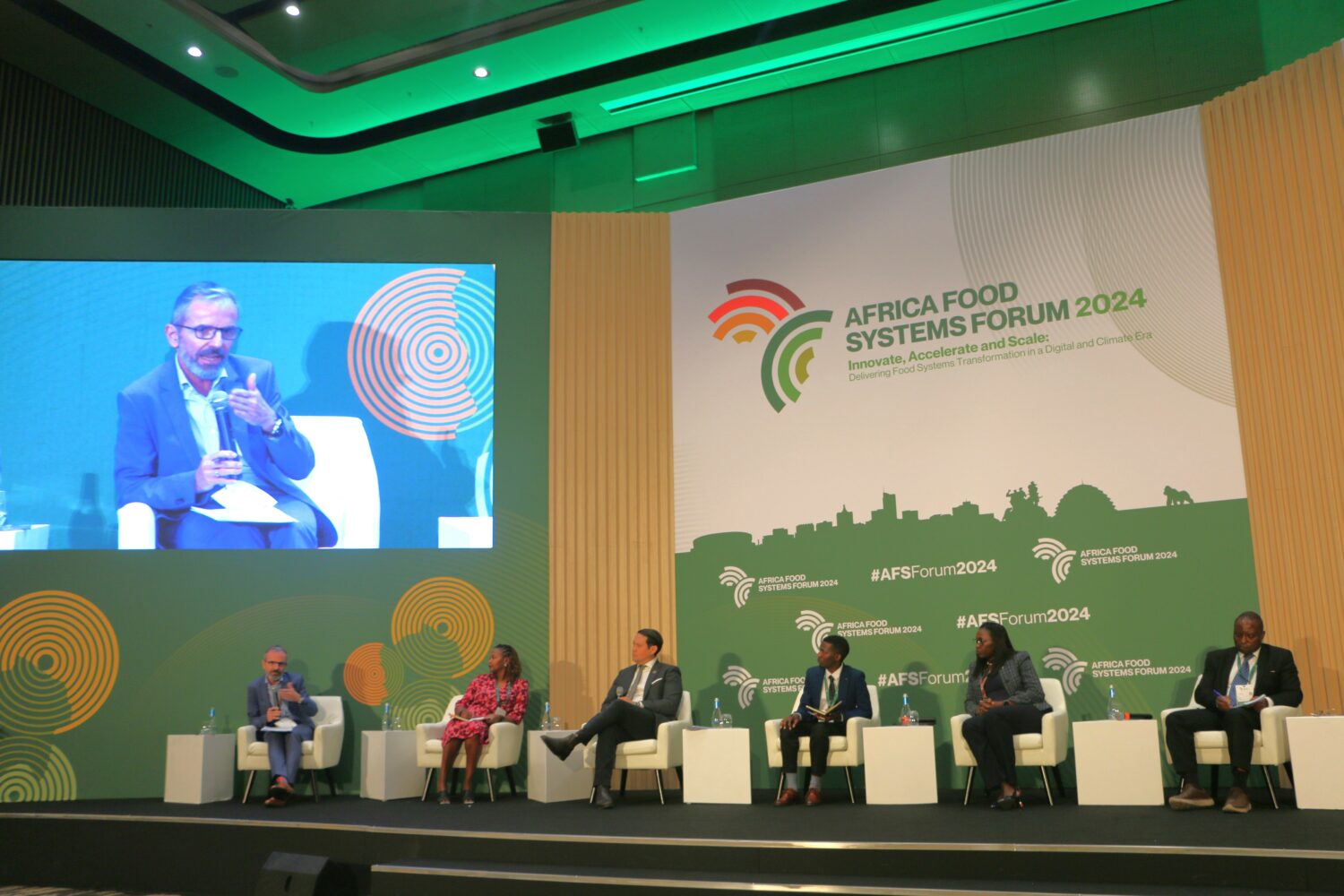“One of the key challenges in transitioning to regenerative agriculture is demonstrating its value to smallholder farmers and showing how these practices can enhance both productivity and economic sustainability,” stated Mildred Nadah Pita, Head of Public Affairs and Sustainability Africa at Bayer. She emphasized the need for knowledge transfer, access to finance, inputs, and policies that support regenerative agriculture as critical goals for both industry partners and government agencies.
Samuel Nsengiymva, a young Rwandan farmer associated with AgriResearch Unguka, highlighted the importance of training and educating smallholder farmers in regenerative agriculture, stressing that partnerships and platforms are essential for knowledge sharing.
The panelists and audience discussed the importance of further collaboration and partnerships within the agricultural value chain to help smallholder farmers maximize the benefits of regenerative agricultural practices.
Jens Hartmann, Head of Bayer Crop Science EMEA, added, “Forging stronger partnerships is key to unlocking the potential of regenerative agriculture for smallholders. Producing more while restoring more is at the heart of regenerative agriculture, but it requires a concerted effort to support farmers already impacted by climate change.”
Why Regenerative Agriculture Matters
Smallholder farmers produce a third of the global food supply, with figures in some African countries reaching between 70%- 80%. These farming communities face significant risks from poverty, climate change, and hunger. However, regenerative and adaptive agricultural practices are increasingly seen as a way to combat these challenges. Jens Hartmann noted, “The acceptance and understanding of regenerative agriculture by smallholder farmers is crucial to Bayer’s mission of achieving Health for All, Hunger for None.”Audience Feedback and Future Direction
An audience survey during the event revealed that farmers are eager for more knowledge on regenerative agriculture and its benefits, along with improved access to financing and markets. Panelists stressed the need to enhance understanding and adoption of regenerative agricultural practices that maintain land productivity, restore natural resources, and mitigate climate change.“We need to align efforts across research, knowledge transfer, and farmer enablement. African farmers are already implementing elements of regenerative agriculture that protect soil health, biodiversity, and water sources. These initiatives must be recognized, supported, and encouraged through agricultural policies,” concluded Mildred Nadah Pita.
Note to editors
- The panel discussion on a systems approach to regenerative agriculture was hosted in partnership with Bayer, Opportunity International, and CGIAR’s International Potato Center.
- The Africa Food Systems Forum 2024 is an annual platform where industry stakeholders discuss, share, and shape the future of food systems across the African continent.
- Bayer’s Sustainability Report tracks the progress toward four agricultural sustainability commitments:
- reduce on-field greenhouse gas emissions;
- limit the environmental impact of crop protection products;
- enable smallholder farmers; and
- reduce water use.
- For Bayer, regenerative agriculture is an outcome-based production system, where improving soil health is at its core aiming to increase resilience. Other key aspects can be mitigation of climate change through greenhouse gas emissions reductions and increased carbon removals, maintaining, preserving, or restoring on-farm biodiversity, conserving water resources through improved water retention and decreases in water run-off, and improving the social and economic well-being of farmers and communities.

